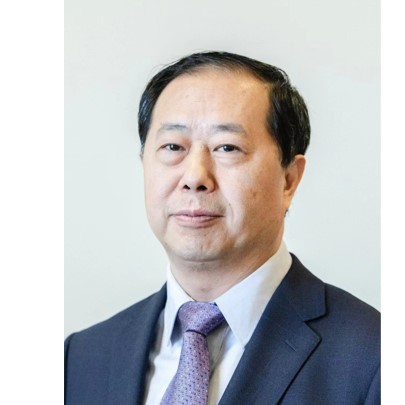
Biography
Mr Tang Shengyao, a national of the People's Republic of China, holds a Ph.D. from the Chinese Academy of Agricultural Sciences, a Master of Science degree from the Imperial College, UK, and a Bachelor’s degree from the Southeastern University of Agriculture, the People's Republic of China.
He started his career in July 1984 as a Programme and Project Officer at the Ministry of Agriculture of the People’s Republic of China, Department of International Cooperation. From January 1988 to January 1989, he worked as Assistant Director with the Bureau of Agriculture, Tongren Prefecture of Guizhou, the People's Republic of China. In March 1994, he was appointed Deputy Director of the Division of International Organizations, Department of International Cooperation of the Ministry of Agriculture of the People's Republic of China and, in January 1997, Deputy Secretary General at the Xiangxi Autonomous Prefecture, Hunan, the People's Republic of China, where he coordinated and implemented programs and projects to reduce poverty in the Prefecture.
In January 1998, he joined the Chinese Permanent Mission to the Rome-based United Nations Agencies as an Alternate Permanent Representative to FAO, WFP, and IFAD. In January 2001, he became Deputy Director and, in January 2003, Director of the Division of International Organizations of the Ministry of Agriculture, the People's Republic of China. From January 2006 to August 2012, he served as Director of the Division of Asia and Africa of the Department of International Cooperation at the Ministry of Agriculture. Since September 2012, he has been serving as Deputy Director-General of the Department of International Cooperation, Ministry of Agriculture, the People's Republic of China. He joined FAO in February 2019 as Director of the South and Triangular Cooperation Office until June 2020.
Since July 2020, he has served as the FAO Representative and Head of the FAO Partnership and Liaison Office (PLO) in the Republic of Korea to strengthen cooperation between FAO and the Korean government in contributing to global food security, eradication of hunger, enhancement of agricultural productivity and improvement of quality of life in rural communities and strengthening regional cooperation.
He started his career in July 1984 as a Programme and Project Officer at the Ministry of Agriculture of the People’s Republic of China, Department of International Cooperation. From January 1988 to January 1989, he worked as Assistant Director with the Bureau of Agriculture, Tongren Prefecture of Guizhou, the People's Republic of China. In March 1994, he was appointed Deputy Director of the Division of International Organizations, Department of International Cooperation of the Ministry of Agriculture of the People's Republic of China and, in January 1997, Deputy Secretary General at the Xiangxi Autonomous Prefecture, Hunan, the People's Republic of China, where he coordinated and implemented programs and projects to reduce poverty in the Prefecture.
In January 1998, he joined the Chinese Permanent Mission to the Rome-based United Nations Agencies as an Alternate Permanent Representative to FAO, WFP, and IFAD. In January 2001, he became Deputy Director and, in January 2003, Director of the Division of International Organizations of the Ministry of Agriculture, the People's Republic of China. From January 2006 to August 2012, he served as Director of the Division of Asia and Africa of the Department of International Cooperation at the Ministry of Agriculture. Since September 2012, he has been serving as Deputy Director-General of the Department of International Cooperation, Ministry of Agriculture, the People's Republic of China. He joined FAO in February 2019 as Director of the South and Triangular Cooperation Office until June 2020.
Since July 2020, he has served as the FAO Representative and Head of the FAO Partnership and Liaison Office (PLO) in the Republic of Korea to strengthen cooperation between FAO and the Korean government in contributing to global food security, eradication of hunger, enhancement of agricultural productivity and improvement of quality of life in rural communities and strengthening regional cooperation.
